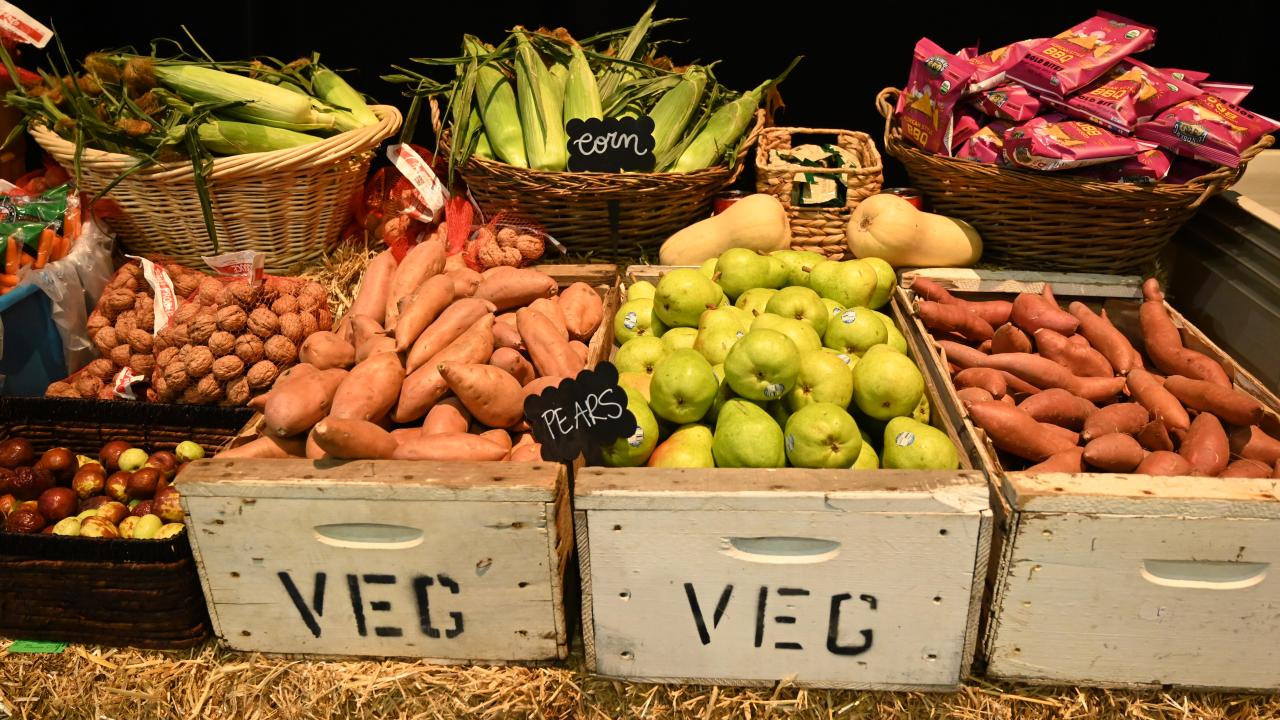
Diet Detectives: Identifying Blood Biomarkers that Track What Foods We Eat
Study to focus on fruits and vegetables in controlled clinical environment
We’ve all heard the phrase “You are what you eat,” but can this actually be measured?
Researchers at University of California, Davis, have obtained a $5 million grant to study diet and identify food biomarkers to see how what we eat affects overall health or risk of disease.
The U.S. Department of Agriculture and National Institutes of Health grant is to be spread over five years, will fund the UC Davis Dietary Biomarkers Development Center (DBDC) and involves researchers from across the university. USDA scientists are also participating.
“There’s this expectation that everyone’s response to food is the same,” said Carolyn Slupsky, a professor in the nutrition and food science and technology departments, who is leading the research. “I think that’s not always the case.”
The biomarkers center is part of a nationwide consortium and partnership with National Institutes of Health, USDA, the Fred Hutchinson Cancer Research Center in Washington state and Harvard University in Massachusetts. Duke University in North Carolina is helping coordinate efforts.
Strict Diet and Monitoring
The research centers on monitoring what people eat and taking blood and urine samples in a controlled clinical setting to pinpoint biomarkers, which are indicators of what someone has eaten.
“We’re measuring hundreds to thousands of food-associated molecules in blood and urine across a diverse population,” Slupsky said.
The controlled diet is key to the research because memories written in a food diary aren’t always accurate, which makes it challenging to assess nutritional status.
“We will know they have eaten only what they’ve been given,” said Francene Steinberg, a professor and chair of the nutrition department who is part of the research team. “It’s really trying to give objective measurements to dietary and food records, which are sometimes subjective.”
In the first phase, a small group of people will be given specific foods to eat on-site and dinner to take home. The second phase will involve more people and the diet will be split among two types: a healthy one with fruits, vegetables and whole grains; and a more typical American diet with some processed foods and less fruits, vegetables and whole grains.
Turning the Subjective into Objective
Blood and urine samples will be analyzed to pinpoint the biomarkers of specific fruits and vegetables. Knowing these will help researchers accurately assess diet patterns and intakes of specific foods.
“In addition to molecules found in foods, we’ll also find diet biomarkers derived from the gut bacteria and from our own metabolism,” said Sean Adams, professor and vice chair for basic science in the department of surgery and scientific director of the Center for Alimentary and Metabolic Science.
The third phase involves a large group that is not given food but instead is asked to record what they eat. Biomarkers will be compared with what people reported eating to evaluate the vailidity of recall methods for specific foods.
The research could support personalized nutrition and culinary medicine by providing new methods to track an individual’s response to diet.
“Ultimately we will be able to see if we can match up biomarkers with diseases or disease risk,” Slupsky said. “It gives you another tool you can use to assess diet.”
Other UC Davis researchers involved in the project include Oliver Fiehn, a molecular and cellular biology professor who is director of the West Coast Metabolomics Center; Dr. Heather Knych, a molecular biosciences professor with the School of Veterinary Medicine; Brian Bennett, an adjunct associate professor and a scientist with the USDA Western Human Nutrition Research Center; and John Newman, an adjunct associate nutrition professor and research scientist at the USDA Western Human Nutrition Research Center.
Media Resources
- Carolyn Slupsky, Department of Nutrition and Food Science and Technology, cslupsky@ucdavis.edu, 530-219-5757
- Francene Steinberg, Department of Nutrition, fmsteinberg@ucdavis.edu
- Emily C. Dooley, College of Agricultural and Environmental Sciences, ecdooley@ucdavis.edu, 530-650-6807